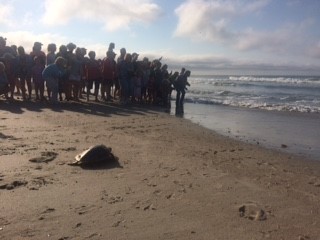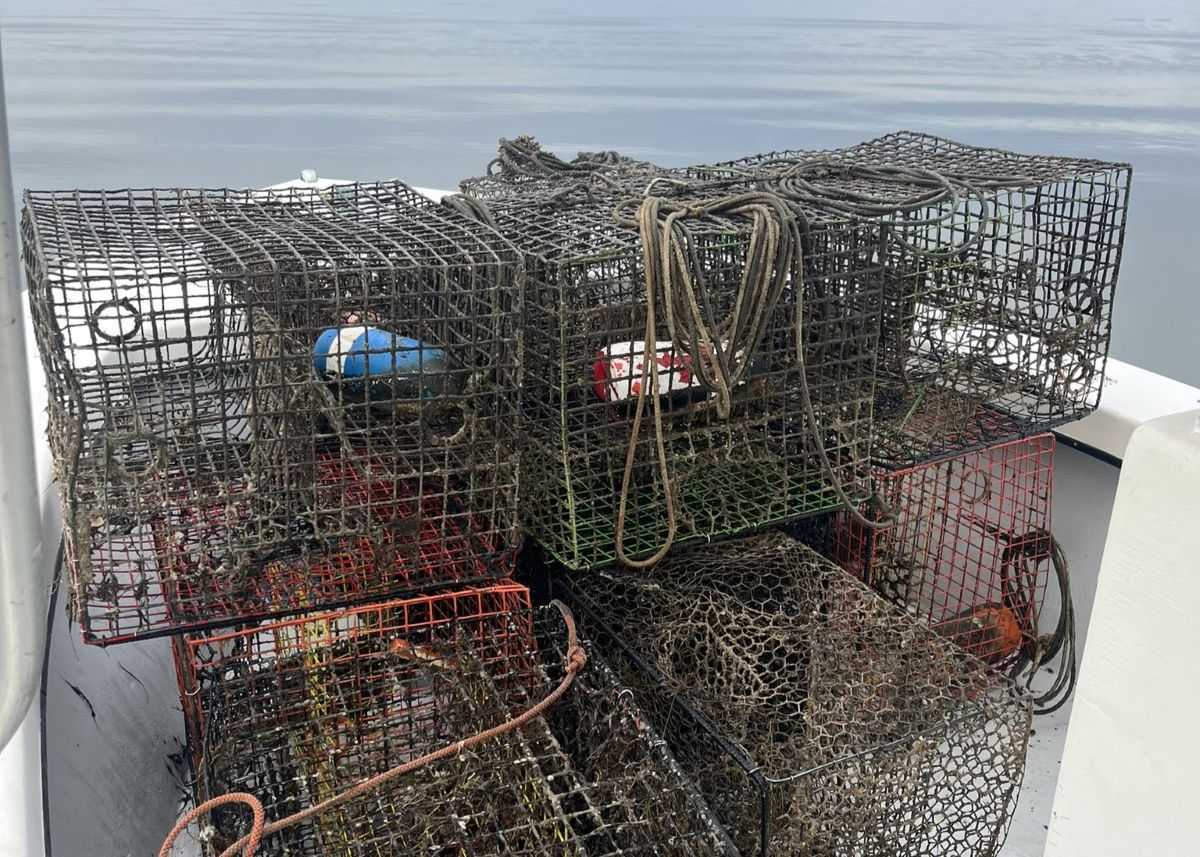
EMERALD ISLE – The North Carolina Aquarium at Pine Knoll Shores Monday released six green and one Kemp’s ridley sea turtles at the Eastern Regional Beach Access.
The rehabilitated sea turtles were cold-stunned during the severe temperature drop in late March. With the cold-stunning event taking place later than usual, coupled with the current warm water temperatures, it was possible for a rare Emerald Isle beach release, according to a release from the aquarium.
Supporter Spotlight
When sea turtles, which are cold blooded, sense the temperature dropping, they normally head toward warmer waters but if they stay or if the temperature changes too quickly, the sea turtles become lethargic and unable to swim or fend for themselves.
“It is very rare for us to have cold-stunned sea turtles so late in the season,” Michele Lamping, an aquarist and sea turtle specialist, said in a statement. “Normally we receive them in December and January.”
Once the cold-stunned turtles were healthy again and had a final veterinary check they were ready to be released. Normally they are taken offshore to waters as close to 60 degrees as possible but with the current water temperatures at the beach at 78 degrees, the turtles were released at the beach instead.
Notify the North Carolina Wildlife Resources Commission’s North Carolina Sea Turtle Project at 252-728-1828 or the Network for Endangered Sea Turtles, or NEST, at 252-441-8622 if there is a turtle in the water or on the beach after cold weather that is not moving or is sluggish. The turtle may be cold stunned and should not be touched or moved, officials said.
The effort to rescue and rehabilitate sea turtles is led by the commission, which collaborates with a number of federal, state and private organizations in the effort.
Supporter Spotlight
The North Carolina aquariums and Jennette’s Pier work with agencies such as NEST, North Carolina State University Center for Marine Sciences and Technology and College of Veterinary Medicine, Cape Lookout National Seashore, Cape Hatteras National Seashore, Hatteras Island Wildlife Rehabilitation, U.S. Fish and Wildlife Service, National Marine Fisheries Service and the Karen Beasley Sea Turtle Rescue and Rehabilitation Center. There are also hundreds of volunteers who walk the beach daily to ensure the safety and success of the sea turtle populations.







